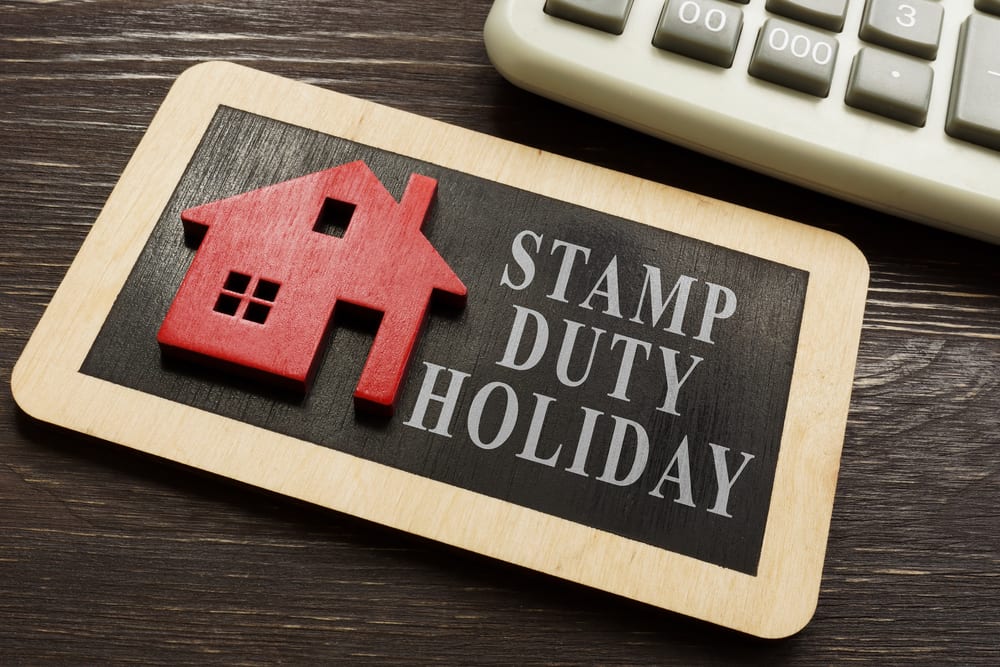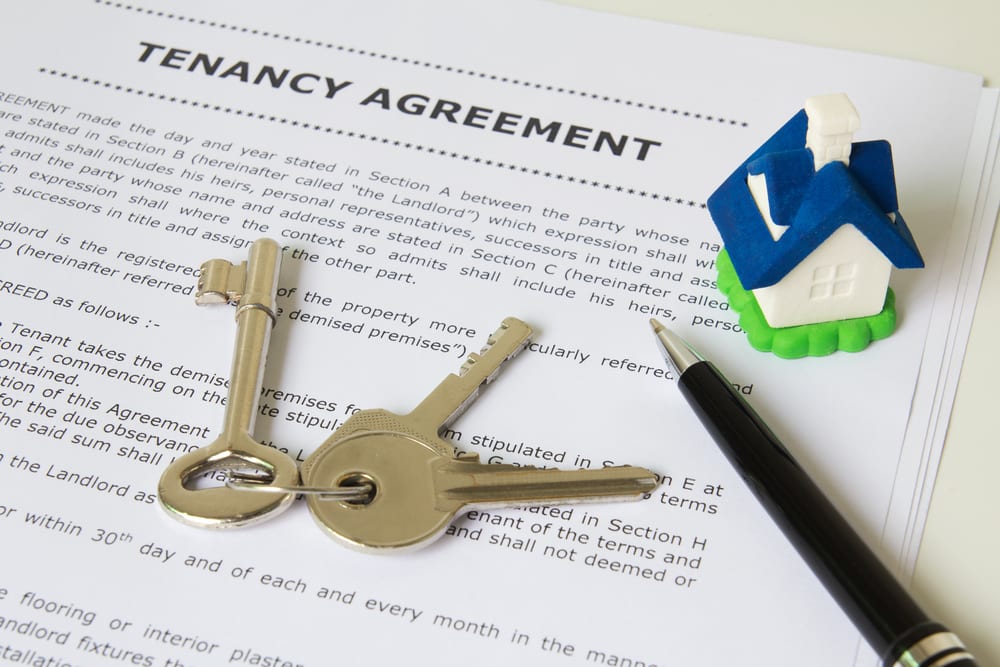
by admin | Jun 26, 2021 | Mortgage News
Barring any major surprises, it now really is the final countdown for the Stamp Duty holiday. Regardless of whether you’re a seller, a buyer, or both, organization will help you meet (or even beat) that deadline. Here are some tips to help.
If you’re selling and don’t have any offers
If you’re selling and you (still) don’t have any offers then you need to up your marketing game quickly. To begin with, make sure that your listing shows potential buyers everything that might interest them. Show and tell. In other words, make sure you have plenty of pictures and/or video as well as informative text.
In particular, highlight your ability and willingness to meet the Stamp Duty deadline. For example, mention the fact that you have already organized the necessary documentation. If you’re definitely moving, no matter what, mention that too. It shows buyers you’re serious.
Remember, you don’t have to stop at the options supported by the property portals and/or your estate agent’s website. For example, you could host a virtual home tour on YouTube (keep security in mind). You could also create videos to highlight the best features of your local area. In fact, you may not have to create them, you might be able to find them online.
You might also want to consider creating a website for your home. There are sites that will allow you to host a very basic website for free. You won’t get your own domain or any advanced functionality but you don’t need them.
If you’re selling and do have offers
Assuming you have more than one offer, choose your buyer astutely. In simple terms, the buyer who offers the highest price may not be the one with the best chance of making good on that offer. If your top priority is to beat the Stamp Duty deadline then you might want to play safe and go for reliability even if the buyer does offer a lower price.
Of course, in order for you to make an informed decision of any sort, you’ll need to know your buyers’ situations. If you’re working with a high-quality estate agent, they will take care of this for you and tell you everything you need to know. If you’re selling yourself then you’ll need to quiz customers yourself.
Online selling portals can be a bit of a grey area. Many of them now offer add-on services such as assistance from real-world sales agents. That said, you’ll have to do your own research on the quality of the service you can expect.
If you’re buying
If you’re buying then do your best to work with a seller who’s also motivated to help you beat the Stamp Duty deadline. Then make sure you do everything you can on your side to speed the process to completion. Here are three specific tips.
Get preapproved for a mortgage
For clarity, being approved for a mortgage “in principle” does not mean that a lender is committing to lending you up to that amount on any property. It is, however, useful guidance on how much you can borrow. As such, it is reassurance for a seller. It can also shorten the time needed for your eventual mortgage to be finalized.
Supercharge your mortgage application
From a buyer’s perspective, there are basically two parts to a mortgage application. The first is choosing your lender. The second is making the actual application. There is a third part, namely the approval process.
That happens at the lender’s side. As a buyer, however, you can speed it along by choosing the right lender and applying in the right way. A mortgage broker may be able to help with both points.
If you choose to apply directly, do your research very thoroughly and make sure you complete the application form exactly as you should. This may sound like stating the obvious but these documents can be lengthy and complex.
Get organized for conveyancing
Choose a conveyancer and be prepared to pay for quality and speed. Reviews my help here. Check that your preferred conveyancer works with your lender and see if they are a member of the conveyancing quality scheme.
Think carefully before securing other debts against your home. Your home may be repossessed if you do not keep up repayments on your mortgage
Please contact us for any more information.

by admin | Jun 18, 2021 | Investment
Eviction protection for tenants is now running out. The exact date it ends varies by country. In England, it’s the 1st of June. Furthermore, the notice period will be reduced from six months to four. Theoretically, therefore, it’s back to “business as usual” for landlords and tenants. In practice, landlords may still have to move carefully. Here are a few points to consider.
Remember the law extends beyond COVID19 measures
If it’s been so long you can’t remember, here are the key points you need to keep in mind when dealing with any tenant.
You are responsible for keeping the property safe
There is no if, but or maybe about this. For as long as a tenant has legal possession of your property, you have to keep it safe and habitable. If a tenant is being difficult about granting you/your representatives access to your property, then it’s highly advisable to document all steps you take to resolve the situation.
It’s also advisable to contact your local authority. They may be able to help, especially if the issue could potentially have a negative impact on other properties. Realistically, however, the aim of contacting a local authority is generally just to make sure they know your side of the story. Otherwise, they might get a garbled version of events from other sources.
Any eviction proceedings must follow due process
Do not be tempted to take any shortcuts here, not even if they seem to be benign, for example, offering your tenant financial assistance to leave. Follow the process to the letter. It may be frustrating. It is, however, likely to be a whole lot less frustrating than the possible results of trying to work around the law.
Keep the Equality Act 2010 in mind
These days, it’s not just enough to avoid discrimination on the basis of protected criteria (direct or indirect). You need to be able to demonstrate that you have avoided discrimination on the basis of protected criteria. Effectively, this means that you don’t just need an audit trail of what you did but a log of why you did it. This will show that you use a legally-robust process to reach your decisions.
Lender forbearance also extends beyond COVID19 measures
A lot of the “COVID19 support measures” were essentially just variations on standard lender-forbearance requirements. In fact, the only real difference was that people could self-certify rather than having to go through a lender’s standard approval procedure. That is now ended and hopefully, it will not need to be brought back.
There is, however, still support for people who need it. That includes landlords who are struggling to make their mortgage payments for any reason. If the reason is due to a tenant not paying rent, then the lender would be expected to work with the landlord to come to an arrangement everyone can manage.
If you’re having issues with a tenant (or anything else), it’s advisable to contact your lender as early as possible. Remember, it’s in their interests to work cooperatively with you. Leaving aside the regulators, they have public opinion to think about, especially after 2008.
Landlord forbearance should also extend beyond COVID19 measures
Just because you can now evict your tenants, it doesn’t mean that you should. If a tenant is generally “low-maintenance”, then it may be in your best interests to give them some breathing space to get back on their feet.
After all, if you evict them, then not only will you have the eviction expense but you could also have a void period. What’s more, there’s no guarantee that any future tenant will be an improvement on the current one, at least not over the long term.
The reality is that the UK economy is probably going to need some time to recover from the pandemic (and Brexit). Until then, any tenant could potentially struggle for a while. In most cases, learning to work with this will prove better than resorting to evictions.
Please contact us for any more information

by admin | Jun 11, 2021 | Mortgage News
According to the Office for National Statistics, UK inflation more than doubled from March (0.7%) to April (1.5%). At any other time, this data might have been met with gasps of pure horror. Right now, however, the situation is a lot more complicated. Here’s a quick guide to what you need to know.
The world is finally getting back to business
COVID19 is not yet consigned to oblivion but it’s getting there. This is allowing the world, in general, to get back to business. Of course, with so many businesses having been mothballed for most, if not all, of the last year or so, there’s a lot of catching up to do. In particular, the logistics industry needs to deal with a serious backlog – and the recent issue with the Suez Canal didn’t help with that.
This means that right now supply-side issues are limiting the availability of some items right at a time when demand is increasing. Businesses are opening up again, so more jobs are becoming available. Furloughed workers are returning and remote workers are starting to go back to the office at least part of the time. In some cases at least, this will mean them spending money on purchases such as clothes, transport and convenience food and drink.
Overall, therefore, it’s hardly a surprise that UK inflation has shot up. In fact, it would arguably have been more of a surprise if it hadn’t. That doesn’t mean that the increase is welcome news to everyone. As always, there are two sides to every story.
Why inflation is bad news
Inflation basically means rising prices. If you’re in strong economic shape, then you can absorb them. If, however, you’re not, then they can be extremely painful. The financial impact of the pandemic has been extremely uneven, to put it mildly. A few people have, quite bluntly, done extremely well out of it. Most people have been able to get by, albeit possibly only just.
For some people, however, the pandemic has wrought serious havoc on their finances. What’s more, a lot of these people would probably have been living on the financial edge anyway. These people may have to deal with prices rising ahead of their income. They may also face the prospect of interest rates rising in line with inflation. This would make using credit as a stopgap even more expensive.
If interest rates do go up, then the cost of mortgages may go up with them. This is, however, also variable, at least in the short term. If new buyers have opted for fixed-interest loans then interest-rate changes will not affect them until the fixed-term runs out. Established buyers with variable-interest loans could switch to a new deal. Those most in danger, therefore, are recent buyers with variable-rate loans.
Why inflation is good news
Inflation encourages people to get out and spend. In short, the message is that you can either buy now or risk the price going up later. Obviously, there are limits to this. If people can’t afford something now then they can’t buy it regardless of whether or not it seems like a good deal. What’s more, if inflation gets seriously out of control then it may result in major social upheaval.
The UK is, however, a long way off this. Although 1.5% is way above 0.7%, it’s still comfortably below the Bank of England’s inflation target of 2% with a 1% margin of error in either direction. In fact, 0.7% inflation was actually too low to be desirable. Under normal circumstances, the Bank of England would have been expected to take corrective action.
In short, therefore, the surge in inflation is essentially just a sign that the UK’s economy is starting to get back to where it should be. That fact should be welcomed by everyone.
Think carefully before securing other debts against your home. Your home may be repossessed if you do not keep up
repayments on your mortgage
Please contact us for any more information




Recent Comments